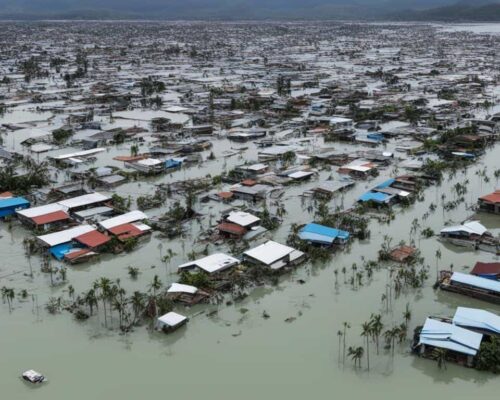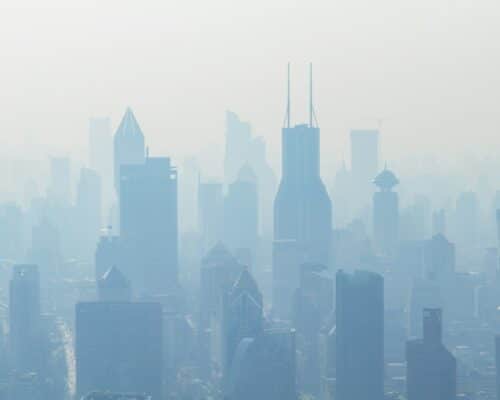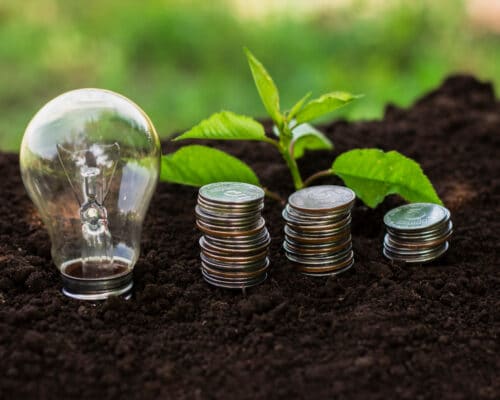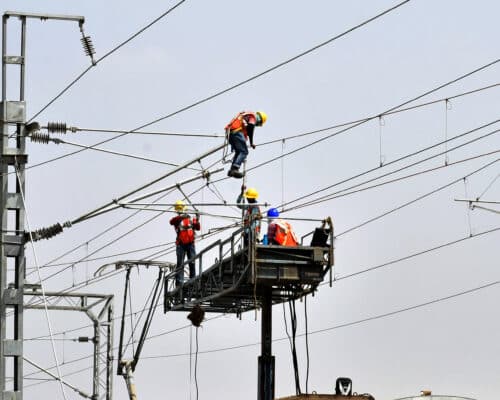Philippines
Wind Energy in the Philippines – Present and Future
The Philippines has significant onshore and offshore wind potential, but it has remained largely untapped. However, with its renewable energy goals, a growing number of wind farms are appearing across the country. This includes the largest wind energy facility in Southeast Asia.

Renewable Energy in the Philippines – Current State and Future Roadmap
The Philippine's is quickly becoming a renewable energy leader in Asia, with its ambitious targets and plans to contribute and reach net-zero.

Climate Change in the Philippines and Its Far-reaching Impacts
The Philippines is ranked as one of the most climate-vulnerable countries in the world. Climate-driven events like extreme weather and coral bleaching will significantly impact the country's economy and local livelihoods in the coming decades. The government must implement resilience strategies in the near term.
Environmental Issues in the Philippines and New LNG Projects
The fossil gas expansion in the Philippines, mainly fueled by SMC, is taking place amid the worsening climate and energy crisis. The move risks burdening the nation with high energy costs, unreliable supply, stranded asset risk, increased energy dependency and a devastating impact on the environment.

False Solutions to Climate Change Promoted in Southeast Asia Pose Various Risks
Instead of helping Southeast Asia wean itself off fossil fuels, ammonia-hydrogen co-firing solutions and CCS risk perpetuating their use and locking climate-vulnerable countries into a future of high emissions, air pollution and ecosystem disruption.

Clean Coal vs Renewables: Economic Costs and Gains For Southeast Asia
Despite the subsidies and industry support, Japan’s proposed technologies are struggling to prove promising even at home. Yet, it aims to export them to countries with much more fragile economies and significant challenges. Crunching the numbers reveals that Southeast Asia has a lot to gain if its pursues renewables instead.
The Philippines’ Choice: Going Clean or Going With SMC
The Philippines has immense clean energy potential and has already witnessed the benefits of tapping into it. Whether the government continues in this direction will reveal if its priorities lay with the corporations or the public interest.

LNG Expansion in the Philippines Harms Communities and Coral – Podcast
Energy Insights spoke with Liza Osorio about the Philippines and San Miguel Corporations' LNG expansion impacts on communities and coral reefs.
Renewable Energy Projects in the Philippines: 100% Foreign Ownership Authorised
The Philippines' drive to ramp up its renewable energy sector is a step in the right direction. However, it needs even more renewable energy development and investment. The government must also make a net zero by 2050 pledge to catch up to its regional neighbours.
Oil Spill in the Philippines Implicates San Miguel Corporation
A major oil spill in the Philippines raises concerns over a corporate giant’s refusal to accept responsibility for the disaster. It also raises concerns over its dismal environmental record due to liquefied natural gas (LNG) development. The government is waffling, and the environment, local residents and fisherfolk are suffering.
Japanese Technology Expansion: Southeast Asia Pays the Price
This year's G7 meeting, which Japan will chair, remains an important moment for its international credibility in the battle against the climate crisis.

The Impacts Of the Electricity Price Increase On Asian Countries
While the electricity price hikes across developing and developed Asian nations started in 2022, they are expected to extend into 2023. This risks impeding economic growth, fueling inflation and affecting the poorest the most. On the bright side, it is the perfect moment for a long-needed energy system overhaul.
Electricity Price Hikes in the Philippines
The filed petition for a temporary adjustment to the 2019 power supply agreements by SMC and Meralco and its rejection by the regulator are yet more indications of the importance of proper risk management and the drawbacks of relying on fossil fuels in a net-zero-chasing world.
San Miguel Corporation’s LNG Projects and their Implications for the Company and the Philippines
Natural gas has successively been shown to oppose the goals of solving the energy crisis. It causes environmental issues and won't help the Philippines decarbonise. Gas is now an impractical choice for the San Miguel Corporation, the regions biggest LNG developer.
Most Popular
Categories
-
9
-
33
-
126
-
4
-
17
-
43
-
52
-
11
-
10
-
15
-
24
-
6
-
6
-
249
-
196
-
14
-
23
-
1
-
1
-
23
-
38
-
42
-
84
-
18
-
81
-
41
-
17
-
10
-
40
-
43
-
86
-
284
-
21
-
40
-
35
-
10
-
41
-
36
